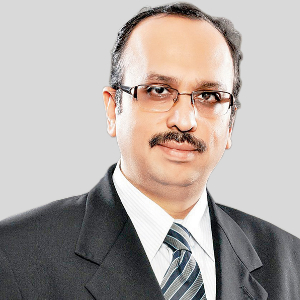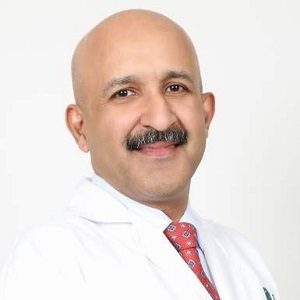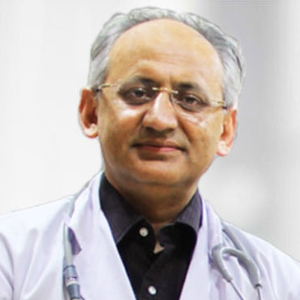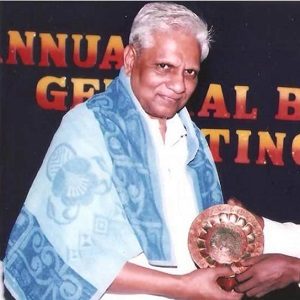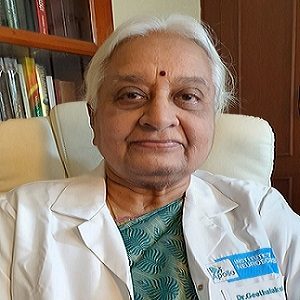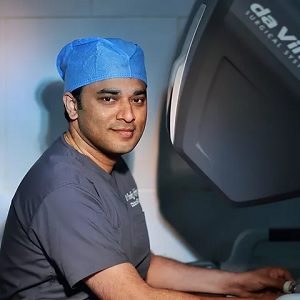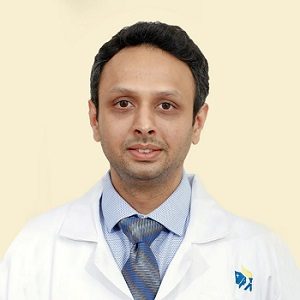Best Doctors in India for Alcoholic Hepatitis Treatment
- Top Orthopedic Surgeon | Fortis Hospital, Mulund, Mumbai, India
- 25+ Years Experience
- Fortis Hospital Mulund Mumbai
Profile Highlights:
- Dr. Kaushal Malhan is a renowned Orthopedic Surgeon in Mumbai with expertise in hip and knee replacement surgery and regional resurfacing.
- Dr. Kaushal Malhan’s name has been recorded in the Limca Book of Records for his innovative Tissue Preserving Total Knee Replacement Technique that helps in reducing post-operative recovery time.
- Dr. Malhan pioneered computer-assisted joint replacement surgery in India and is the first orthopedic surgeon to perform gender-specific computer-assisted and minimally invasive knee replacement.
- Top Orthopedist | Apollo Hospital, New Delhi, India
- 20+ Years Experience
- Indraprastha Apollo Hospital, New Delhi
Profile Highlights:
- Dr. Havind Tandon is one of the best Orthopedists in Delhi, having nearly two decades of experience. He practices as a senior consultant at Indraprastha Apollo Hospital.
- Many patients who need a knee replacement, repair, or osteotomy have benefitted from his enthusiasm and skill in the field.
- Dr. Havind Tandon worked with Jhonson & Jhonson as a Facilitator for the National Joint Replacement Program.
- Pain management counseling, Joint Replacement Surgery, Spinal Therapy, reverse shoulder replacement, neuropathy assessment, foot drop, treatment of complex fractures, and Adult Joint Reconstruction are just a few of the vital services provided by Dr. Havind Tandon.
- Dr. Tandon was also recognized for his work in the field of research.
- Orthopedic Surgeon, Gurugram, India
- Over 18 years’ experience
- Artemis Hospital, Gurgaon
Profile Highlights:
- As the Head of Unit-III at Artemis Hospitals, Gurugram, Dr. Chauhan has demonstrated expertise in a wide range of orthopedic procedures, particularly in arthroplasty.
- He has successfully assisted and independently performed numerous complex surgeries, including Total Knee Replacement (TKR), both cemented and un-cemented Total Hip Replacements (THR), surface replacements, Unicompartmental Knee Arthroplasty (UKA), and shoulder and elbow replacements.
- In addition to his surgical expertise, Dr. Chauhan is proficient in managing orthopedic emergencies, polytrauma cases, pediatric fractures, soft tissue injuries, septic arthritis, and osteomyelitis.
- Orthopedic Surgeon, Gurugram, India
- Over 25 years’ experience
- Artemis Hospital, Gurgaon
Profile Highlights:
- Dr. (Prof.) Ravi Sahuta stands out as a distinguished leader in the field of orthopaedics, bringing over three decades of comprehensive experience to his role as Chief and Head of the Department of Orthopaedics & Joint Replacement at Artemis Hospitals, Gurugram.
- Dr. Sahuta’s educational foundation is robust, starting with an MBBS and MS in Orthopaedics from MGIMS, University of Nagpur. He further pursued advanced specialization with an M.Ch (Orthopedics) in the USA, alongside additional qualifications including AOFF (USA) and FIAMS (India).
- His career highlights include leading the development of the orthopaedics department at Paras Hospital from 2006 to 2016, where he pioneered sub-specialties. Subsequently, he served as Director and Head of the Department of Joint Replacement and Orthopaedics at Max Hospital from 2016 to 2018.
- Neurosurgeon | Apollo Hospitals Greams Road, Chennai | India
- 10+ years’ experience
- Apollo Hospitals Greams Road
Profile Highlights:
- Dr. Srinivasan Paramasivam is a well-known Neurosurgeon in India having an overall experience of 10 years.
- He is associated with Apollo Hospital, Chennai as a senior consultant – neurosurgeon following his assignments abroad.
- Dr. Paramasivam earned a fellowship in Endovascular Neurosurgery from New York. He has specialized experience in Neuro Interventional Surgery, Cerebral Angioplasty, Brain Tumor Surgery, Surgical Clipping, etc.
- Neurologist, Chennai, India
- Over 34 years’ experience
- Apollo Hospitals Greams Road
Profile Highlights:
- Dr. Dhanaraj M is a recognized neurologist in India, currently practicing as a Senior Consultant Neurologist at Apollo Hospital, Greams Road, Chennai.
- He has dedicated 35+ years to managing neuromuscular and neurological disorders and academics. He is proficient in treating conditions such as Alzheimer’s disease, Meningitis, Meniere’s Disease, Brain infections, and Light-headedness.
- As an experienced neurologist, he conducts a range of procedures such as EEG for brain activity monitoring, Nerve Conduction Studies to evaluate nerve function, Lumbar Puncture for cerebrospinal fluid testing, MRI for detailed brain imaging, and EMG to assess muscle health.
- Neurologist, Chennai, India
- Over 34 years’ experience
- Apollo Hospitals Greams Road
Profile Highlights:
- Dr. Geetha Lakshmipathy is a highly regarded neurologist with over 34 years of experience. Her experience stretches across academic, research, clinical, and administrative work.
- She is currently working with Apollo Hospital, Chennai as a Senior Consultant Neurologist following her retirement from Madras Medical College and Government General Hospital.
- Dr. Lakshmipathy specializes in treating a wide range of neurological conditions, including Neurological Dysfunction, Neuromuscular Disorders, Brain Aneurysm Surgery, and VP Shunt placement.
- Colorectal Surgeon and Robotic Surgeon, Chennai, India
- Over 26 years’ experience
- Apollo Hospitals Greams Road
Profile Highlights:
- Dr. Venkatesh Munikrishnan is one of the best Gastroenterologists and Colorectal Surgeons in Chennai, having 21 years of experience in managing disorders that need surgical treatment.
- Dr. Munikrishnan specializes in surgical oncology, endoscopy, Gastritis Treatment, etc.
- He is also active in research; one of his research on CT Colonography fetched a grant from Bracco, Milan, Italy.
- Neurologist, Chennai, India
- Over 30 years’ experience
- Apollo Hospitals Greams Road
Profile Highlights:
- Dr. Rajendran S is a highly respected neurologist at Apollo Hospitals, Greams Road in Chennai, with over three decades of experience.
- Dr. Rajendran is known for his personalized treatment plans tailored to each patient’s needs, utilizing specialized diagnostic tools like polysomnography.
- Specializing in Alzheimer’s disease, migraine, epilepsy, BT treatments for movement and headache disorders, and employing advanced electrophysiology techniques, he is sought after for his expertise.
- Dr. Rajendran holds specialized training as a neuropsychiatrist from the United Kingdom and is a distinguished member of the Royal College of Physicians of Ireland.
- Orthopedic Surgeon, Chennai, India
- Over 13 years’ experience
- Apollo Hospitals Greams Road
Profile Highlights:
- Dr. Kunal Patel is a highly skilled orthopedic surgeon with over ten years of focused experience in joint replacement and arthroscopic surgeries.
- He is currently associated with Apollo Hospital, Greams Road, Chennai as a Senior Consultant of Orthopedics.
- Prior to joining Apollo Hospitals, Dr. Patel also worked as an Associate professor, Consultant, and Fellow at his earlier workplaces in 13 years of his overall experience.
- Dr. Patel is at the forefront of his field, continuously innovating with advanced techniques that enhance recovery and patient outcomes. Known for his expertise in pain-free joint replacement surgeries, he upholds the highest standards of patient care in all aspects of his practice.
Best Hospitals in India for Alcoholic Hepatitis Treatment
ALCOHOLIC HEPATITIS
Alcoholic hepatitis is a liver infection, which is mainly caused by frequent, heavy use of alcohol. Fat can build up in the liver cells, which might lead to inflammation as well as scarring of the liver.
Alcoholic hepatitis might be mild or severe. A patient might even need a liver transplant if proper treatment is not provided, or if they don’t stop consumption of alcohol.
It is also notable that all heavy drinkers don’t develop this condition, and sometimes this condition even develops in people who drink moderately. However, if you are diagnosed with this condition, it is important for you to quit drinking alcohol. People who continue drinking alcohol might face a huge risk of serious liver damage as well as death.
Symptoms
Depending on the amount of damage to the liver, the symptoms can vary. If you are having a mild form of the disease, you might not even experience any symptoms at all. However, as the damage continues to grow, you might experience the following:
- Changes in appetite
- Dry mouth
- Weight loss
- Pain or swelling in the abdomen
- Jaundice, or yellowing of the skin or eyes
- Fever
- Nausea and vomiting
- Easy bleeding or bruising
- Changes in your mental state, including confusion
- Fatigue
The symptoms of this condition are similar to those caused by a few other health conditions. Therefore, if you develop any of these symptoms, it is best to get a proper diagnosis as well as begin treatment.
Causes & risk factors
Alcoholic hepatitis generally develops when the alcohol you drink causes damage to your liver. However, it is not clear why alcohol does this damages only to some heavy drinkers.
Few factors that are known to play a role in this condition include:
- The body’s process that breaks down alcohol produces some toxic chemicals
- These chemicals can trigger inflammation that can destroy the liver cells
- Thus, over time, scars replace healthy liver tissue, thus interfering with the function of the liver
- This irreversible scarring, which is also termed cirrhosis, is the final stage of alcoholic liver disease
If you have hepatitis C and continue to drink, even moderately, you are more likely to develop cirrhosis.
Some heavy drinkers are also malnourished because they don’t eat a proper balanced diet. Alcohol and its byproducts also prevent the body from absorbing nutrition properly. Lack of nutrition can contribute to liver cell damage.
Some other risk factors that can lead to this condition include:
- Your sex- Women are usually at a higher risk of developing alcoholic hepatitis since the way alcohol is processed in women is different.
- Binge drinking- Having over five drinks within two hours for men and four or more for women can increase the risk of alcoholic hepatitis.
- Obesity- Heavy drinkers who are overweight are also more likely to develop alcoholic hepatitis and to progress from that condition to cirrhosis.
- Race and ethnicity- Hispanic and Negroid people might be at higher risk of alcoholic hepatitis.
- Genetic factors- According to studies, there may be a genetic component in alcohol-induced liver disease. However, it is difficult to separate genetic and environmental factors.
Diagnosis
If you are showing symptoms of alcoholic hepatitis, your doctor will first inquire about your medical history and alcohol consumption. Next, he/she will perform a physical exam to see if you have an enlarged liver or spleen. They might also need a few more tests to confirm your diagnosis, such as:
- Complete blood count (CBC)
- Liver function test
- Ultrasound of the liver
- Abdominal CT scan
- Blood clotting tests
In some cases, a liver biopsy might also be needed to confirm the diagnosis of alcoholic hepatitis. A liver biopsy requires your doctor to remove a tissue sample from your liver, which is then tested in the lab. This method helps to show the severity and type of liver disease.
Treatment
Stopping alcohol consumption is the most important treatment for alcoholic hepatitis. There is no cure for this condition, but treatment can help in reducing or eliminating symptoms, or stopping its progression.
It is also important to note that scarring of the liver is permanent, but treatment can aim to restore as much function as possible.
Dietary changes
Medication
Liver transplant
The best hope of recovery is to be aware of the signs and symptoms as well as to reduce, manage, or if possible, completely stop consumption of alcohol.
Complications
Alcoholic hepatitis might lead to severe other complications such as:
- Enlarged veins (varices)- In this condition, blood that is unable to flow freely through the portal vein, can back up into other blood vessels in your esophagus or stomach.
- Hepatic encephalopathy- This condition can be caused by the buildup of toxins if your damaged liver is unable to remove all the toxins from your body. It involves confusion, drowsiness, and slurred speech.
- Ascites- Ascites is a condition in which the fluid that accumulates in the abdomen may get infected and thus, require treatment with antibiotics. Although this condition is not life-threatening, it can be a sign of advanced alcoholic hepatitis, or cirrhosis.
- Kidney failure- A damaged liver affects blood flow to the kidneys, thus resulting in kidney failure.
- Cirrhosis- The scarring of the liver might lead to liver failure.
Prevention
Alcoholic hepatitis might be prevented if you take the following steps:
- Drink alcohol in moderation, if at all- For healthy adults, moderate drinking means no more than one drink a day for women of all ages and men older than 65, and not over two drinks a day for men aged 65 and younger. However, if you prevent all alcohol, it is a certain way to prevent this condition.
- Check before mixing medications and alcohol- Ask your doctor if it’s safe to drink alcohol while you are taking medications. Consider reading the warning labels on over-the-counter medications as well. Don’t drink alcohol when you are taking medications that warn of complications when combined with alcohol.
- Protect yourself from hepatitis C- Hepatitis C is an infectious liver disease that is caused by a virus. If it is left untreated, it may lead to cirrhosis. If you are having hepatitis C and you consume alcohol, you’re generally more likely to develop cirrhosis than if you don’t drink.

